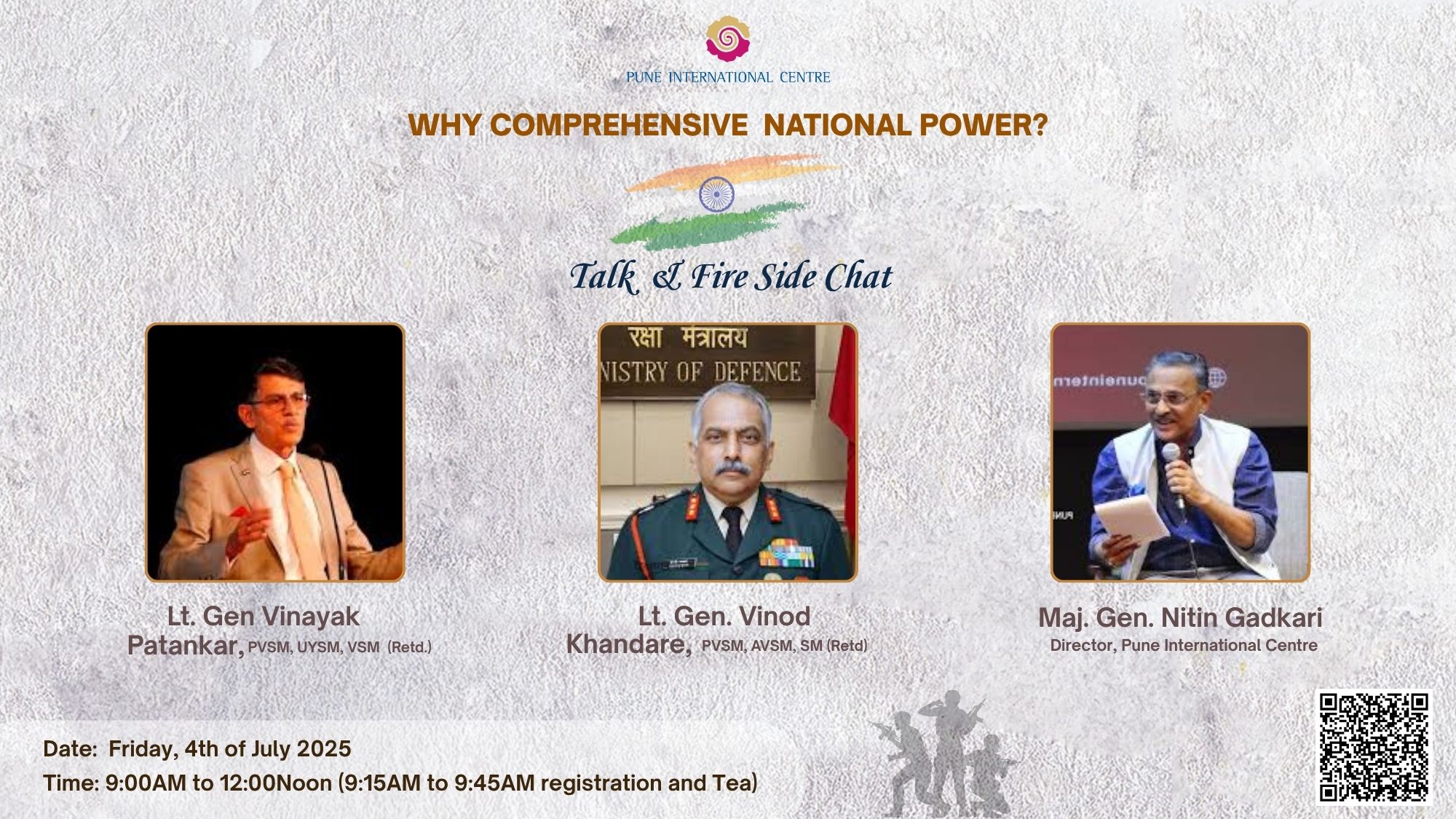A Panel discussion
On 5th February 2017, a panel discussion on the Union Budget was organised at the Gokhale Institute of Politics & Economics (GIPE) with Panelists from Institutional Members of PIC. The programme was chaired by Dr. Ajit Ranade, noted economist and Member, PIC. The Panelists who participated in this discussion were Dr. Achintan Bhattacharya from the National Institute of Bank Management (NIBM), Prof. Pradeep Apte of GIPE, Dr. Rathin Roy of National Institute of Public Finance & Policy (NIPFP) and Dr. Shubhashis Gangopadhyay of the India Development Foundation (IDF).
Dr. Ajit Ranade opened the session by stating that this was the first budget post demonetisation, the first budget that has merged the railway budget with the union budget, the first budget to have eliminated the distinction between planned and non-planned spending and the last budget before GST would be introduced.
Dr. Rathin Roy stated that there has been a continuous decline in the revenue deficit and fiscal deficit ratio. He also highlighted the fact that over the last 30 years, the ratio of what the Government borrows for its yearly expenditure to the Government’s total borrowing has been continuously rising, which he considers nothing less than a national crisis. He opined that public finances cannot be run when over two-thirds of the Government’s borrowing is for yearly expenditure, which it should be financing out of public taxes. He threw light on the increased spending on Transport and later also emphasised universal basic income being counter-intuitive to the ‘growth’ of the economy.
Dr. Achintan Bhattacharya delivered his talk through the lens of a common man. He stated that it was a fantastic budget from an accountant’s point of view, wherein everything was arithmetically very well balanced. Reflecting on the budget, he pointed out the discrepancies in the priorities and commitments of the Government observed that the budget was not very different from the previous years, barring a few minor changes. Doubling the PM Fasal Yojana was one of the positive aspects of the budget in his view, but he underlined that the insurances are being given by the Agricultural insurance corporations, which are loss making units. He also observed that agricultural lending had been increased by 1 crore but the government’s promise of lending the differential, which is the interest subvention, had not been mentioned at all. He concluded his talk by making an appeal for distributive justice.
Prof. Apte introduced his view on the budget by stating that there was a lot of rigidity on expenditure and given this scenario, revenue design and capital expenditure are the only two areas where innovations would be possible. He projected that if banks are given a target of 10 lac crores to be extended to farmers, this would only encourage another source of booking Non-Performing Assets (NPAs). On the contrary, nearly 63000 Public Sector Enterprises (PSEs) will get integrated with the formal banking sector, which would be a positive aspect. He ended his segment by stressing on the fact that we suffer from a great information deficiency and our policies are therefore not very knowledge-based. More importantly, the delivery of development outcomes is crucially dependent upon the nature and quality of manpower that we have and that budgetary allocations are not going to be a panacea for our developmental problems.
Dr. Gangopadhyay drew attention to the Railways becoming a part of the union budget as a very good move, as transport and logistics is one area where we lack and this merger would play an integral role in boosting that area. He pointed out that every government had been taking credit for spending more on MNREGA and raised the question that if this really was happening then where all the development has taken place. Speaking of agriculture insurance, he emphasized that it hasn’t been implemented in any other country and is no different to a payout from the government (or the non-agriculturalists) to the agriculturalists. Lastly, he raised another pertinent question regarding the impact of social sector spending on the GDP. “The objective of economic policy is not to help the poor, but to help the rich and poor”, he said, and concluded that there were barely any innovations in this year’s budget




